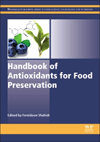Understand dairy’s role in the flexitarian diet
A strict vegan diet can produce nutrient shortfalls.

An increasing number of consumers have been turning to a vegetarian or vegan lifestyle. But after a while, many of them find such a diet restrictive and lacking in important nutrients.
An option that allows them to focus on a more plant-based diet — but still eat some meat (and dairy) — is the flexitarian diet. The term comes from “flexible” and “vegetarian.”
Mintel reports that more than one in five U.S. consumers is a flexitarian, and eats meatless meals some of the time (https://www.mintel.com/blog/foodservice-market-news/5-ways-to-stay-on-top-of-the-plant-based-trend.)
And according to Healthline, the flexitarian diet may lead to weight loss, improved insulin control and reduced risk of cancer and cardiovascular disease (https://www.healthline.com/nutrition/flexitarian-diet-guide).
Nutrient adequacy
The nutrients most often missing in a vegan or vegetarian diet include vitamin B12, calcium, iron and zinc. Those who eliminate all meat may also be deficient in protein quality, vitamin D3, DHA and heme iron. Strict vegans must consume dietary supplements.
Vitamin B12 is found only in animal foods and is necessary to make red blood cells and DNA. One 250-milliliter serving of milk provides approximately half of the recommended daily allowance of B12.
About 30% of the calcium in milk is absorbed. Many plant sources of calcium are high in oxalate and phytates, which limit calcium absorption.
Zinc is a nutrient that helps boost the immune system. It is less bioavailable from vegan sources. One scoop of whey protein isolate provides 68% of the daily value of zinc.
Proteins from plant sources are not complete, and consuming complementary plant proteins to achieve all of the essential amino acids needed by the body can be challenging, especially for vulnerable groups such as pregnant women and elderly.
According to a recent research study (https://doi.org/10.1177%2F0379572118775824), one in four children globally is stunted.
“Low birth weight and small for gestational age are risk factors for stunting, which is associated with reduced cognitive development, reduced productivity and chronic disease in later life,” says David Clark, Ph.D., founder of Bovina Mountain Consulting LLC and a serving expert with ADPI’s Center of Excellence. “Dietary pattern studies show an association between moderate dairy protein intake and reduced risk of low birth rate.”
Pauline Chan, RD, director of Food & Nutrition Specialists Pte Ltd., Singapore, notes that the nutritional quality of proteins varies widely.
“Friendly to both flexitarian and vegetarian diets, dairy proteins complement plant sources as a high-quality, complete protein source,” she says. “Protein quality is important to maintain muscle mass to reduce sarcopenia risk, the muscle loss that occurs with aging.
Looking for a reprint of this article?
From high-res PDFs to custom plaques, order your copy today!





